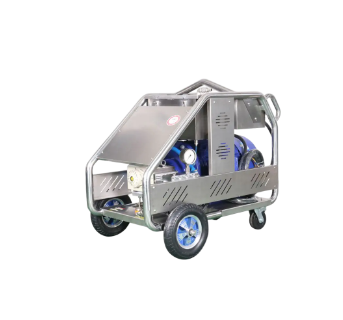High-pressure water blasting pump has revolutionized industrial and commercial cleaning, but environmental concerns are driving demand for more sustainable practices. As awareness grows about water conservation and chemical pollution, operators are seeking eco-friendly alternatives that maintain effectiveness while protecting ecosystems.
The primary environmental concern centers on water usage and chemical runoff. Traditional methods can waste significant amounts of water, while harsh cleaning chemicals may contaminate local waterways, harming aquatic life and disrupting ecosystems. However, modern eco-friendly approaches address these issues through innovative techniques and equipment.
Water conservation begins with equipment selection. Modern high-pressure pumps with pulse modes and adjustable nozzles can reduce water consumption by up to 40% while maintaining cleaning power. Pre-soaking surfaces with light detergent mists allows for shorter cleaning cycles, further reducing water usage. Additionally, capturing and redirecting runoff prevents contaminated water from entering storm drains and natural water systems.
Chemical reduction is equally important. Biodegradable, phosphate-free detergents break down harmlessly in the environment, preventing algae blooms and water contamination. Natural alternatives like vinegar-based solutions effectively remove many stains without environmental harm. Some operators are eliminating chemicals entirely, relying solely on the mechanical action of high-pressure water.
Equipment maintenance plays a crucial role in sustainability. Regular filter cleaning, leak detection, and worn part replacement ensure optimal efficiency, reducing both water and energy consumption. Well-maintained equipment also lasts longer, decreasing manufacturing demands and waste.
The future of water blasting lies in closed-loop systems that recycle water and advanced filtration that removes contaminants before discharge. Solar-powered units are emerging, reducing fossil fuel dependence. These innovations prove that powerful cleaning and environmental responsibility can coexist, allowing operators to achieve superior results while protecting the planet for future generations.
Eco-Friendly Water Blasting Solutions for Sustainable Cleaning
